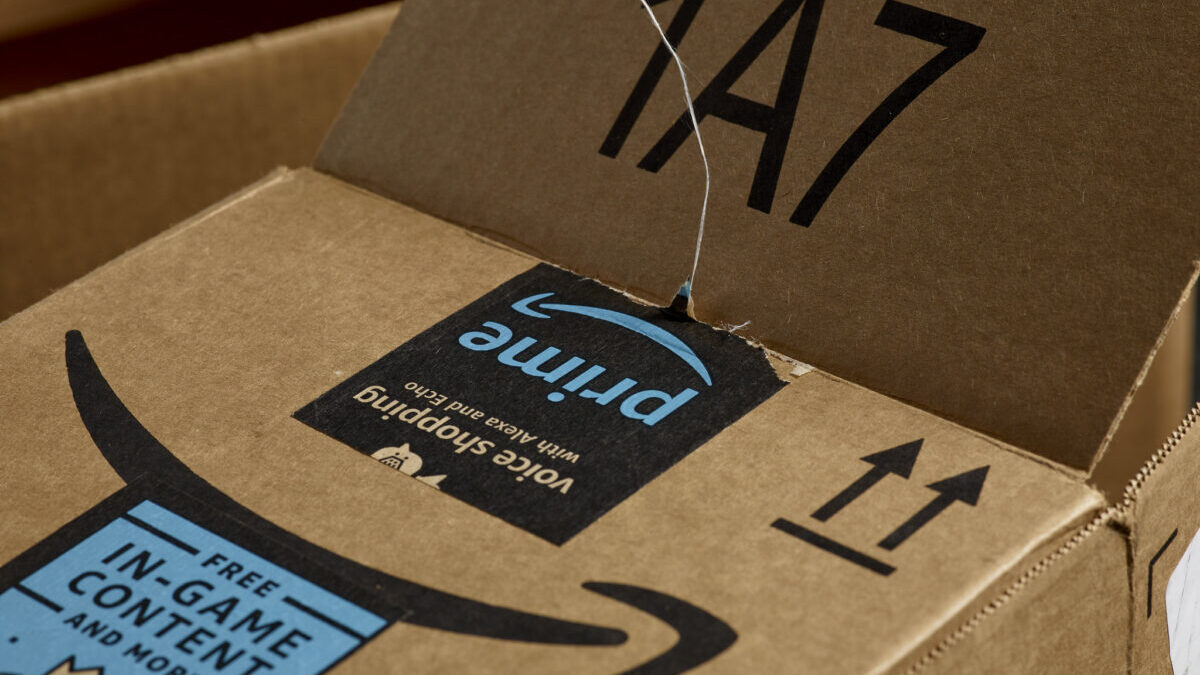Four Senate Democrats wrote a letter this week, detailing their demand for the Big Tech anti-trust bill that’s been working its way through Congress over the past year. They want to help, they say; to “clarify.” They even included the text they want added to make it all better. The reality, however, is their effort is a poison pill — and just the latest effort to kill the best chance to regulate Big Tech that America’s yet seen.
The bill — the American Innovation and Choice Online Act — would prevent what it calls “self preferencing behavior” among those tech companies so large and powerful that engaging in commerce requires engaging with them. Specifically: Apple, Facebook, Google, Amazon, and Microsoft.
Amazon, for instance, is infamous for requiring companies to turn over large amounts of data as a condition of selling on Amazon. They’ve been caught red-handed using that data to copy the most popular products, then making sure users see their knock-offs first. Under this bill, Amazon could not use its platform’s market power to force that disclosure.
The four dissenting liberal senators like the “worthy goal” of the legislation, mind you; just not the little bit that might impede some of the most powerful companies in world history from censoring “hate speech, disinformation and misinformation” — convenient catch-alls for nearly anything they don’t like.
“Although important,” they write, “competition policy goals should not override the ability of platforms to moderate content in good faith.”
More to the point: These four senators appreciate that some smart Republicans have co-sponsored the bipartisan American Innovation and Choice Online Act (AICOA); they’d just rather enjoy that support without any conservative or populist ideas along for the ride.
Sen. Chuck Grassley, the lead Senate sponsor of the bill, has reportedly already promised Republicans will walk if the changes are made, and he’s right: Populists and conservatives like Sens. Josh Hawley, Sen. Ted Cruz, and Rep. Matt Gaetz would flee. And make no mistake: Populists and conservatives defecting would not only kill the bill, it would kill any meaningful chance of reining in Silicon Valley for the next three years at least (and probably more).
Republicans are on the cusp of a giant electoral victory in November, but that doesn’t mean conservatives and populists are on the cusp of any great policy victories. While the likely incoming speaker of the House has shown more awareness of the political moment than his Senate counterpart, the Californian politician is still far from hostile toward Big Tech — or Big Business in general.
In a House and Senate run by Kevin McCarthy and Mitch McConnell, Republican efforts to dismantle Big Tech will find even fewer GOP supporters than the ideologically diverse minority they’ve assembled for the current effort.
Because even now, with cosponsors from Rep. Ken Buck to Gaetz, and from Hawley to Sen. Lindsay Graham, reformers need a lot of Democratic support.
Big Tech lobbyists are working hard to make the case to Republican members that leftist allies are proof of poison. But while it’s true it’s proof of compromise, the reality is both the left and right’s bases are clamoring for action, and the American Innovation and Choice Online Act is the only game in town.
You can expect that Democratic support to evaporate overnight, however, if they lose the majority (which they will). Why? Simply put: They don’t play like that. In the minority, their only goal will be to undermine the majority’s legitimacy; Republicans won’t be able to pave a road or name a Post Office if it requires their support.
So yes: This is it. And thanks to the above, this is it, not only for this Congress, but for the next — and likely the one after that.
There is reasonable resistance to the bill, of course. Senators like Mike Lee have expressed concern about its intrusion into the marketplace. It’s a compromise, no doubt, but that is what the moment requires.
This isn’t some boring squabble. In barrooms and boardrooms from D.C. to Oshkosh, activists on the right and left alike recognize Big Tech’s power is so large, it threatens our politics, markets, and civil society. There’s a fight coming, and this bill is the only viable fight coming for years.
Big Tech knows this: Every company targeted, save Microsoft, has dumped millions of dollars into lobbyists and ads opposing it. They say the bill poses a threat to their power — and it does, because we know they pose a threat to us.
Washington works on momentum. People like to sign on to winning issues and are quick to defect from losing ones. But for both parties right now, reining in Big Tech is a winning issue.
These four Democrats? If Senate Majority Leader Chuck Schumer brings the American Innovation and Choice Online Act to the floor this summer (as he’s promised), they’ll likely fall in line. The alternative, they know, is a vote for Big Tech — and no one wants to be seen doing that right now.
If they get their poison pill in there, however — and the rare bipartisan coalition that’s been assembled cracks — Big Tech will win, and we’ll all lose.









